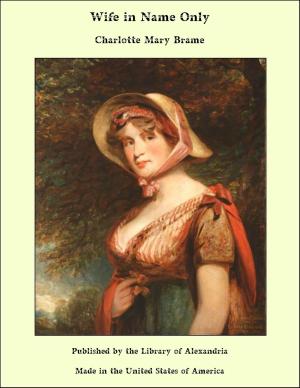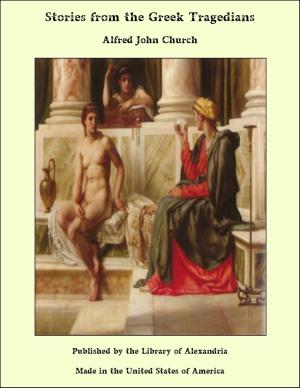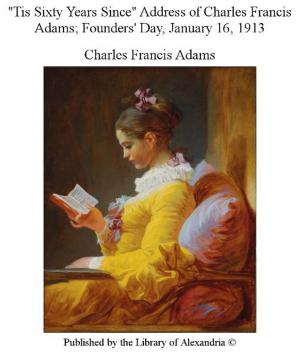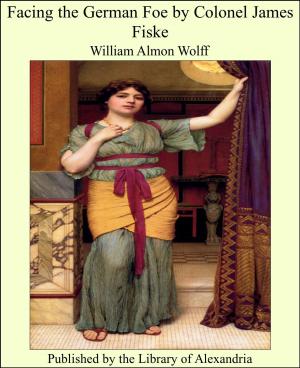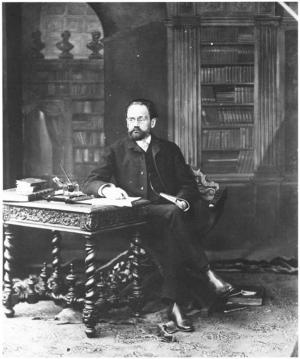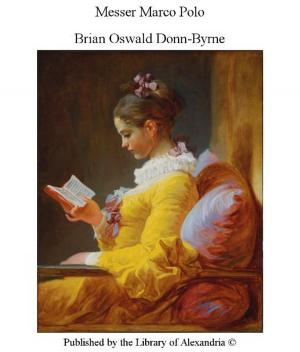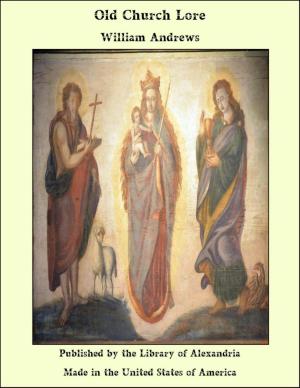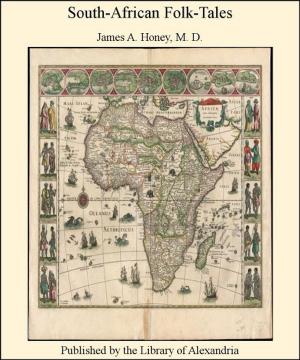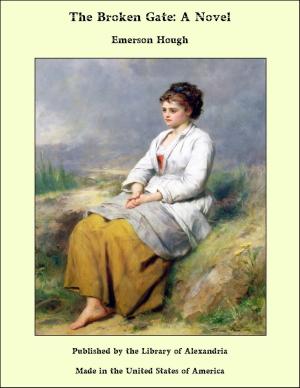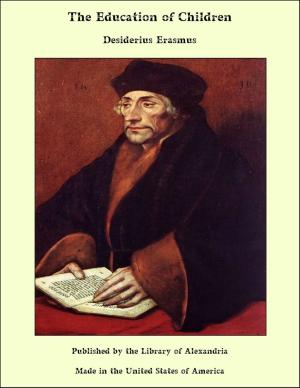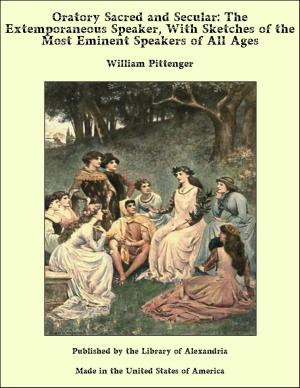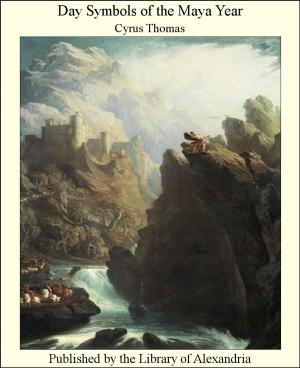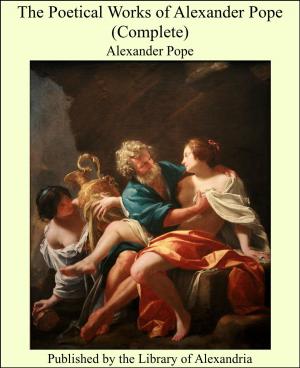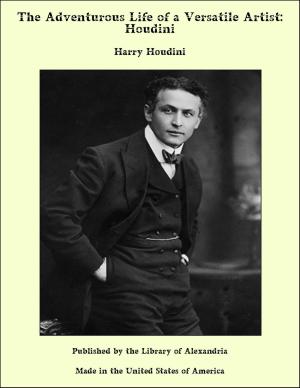Memoirs of the Empress Catherine II. Written by Herself
Nonfiction, Religion & Spirituality, New Age, History, Fiction & Literature| Author: | Catherine II Empress of Russia | ISBN: | 9781465611512 |
| Publisher: | Library of Alexandria | Publication: | March 8, 2015 |
| Imprint: | Language: | English |
| Author: | Catherine II Empress of Russia |
| ISBN: | 9781465611512 |
| Publisher: | Library of Alexandria |
| Publication: | March 8, 2015 |
| Imprint: | |
| Language: | English |
SOME hours after the death of the Empress Catherine, her son, the Emperor Paul, ordered Count Rostoptchine to put the seals upon her papers. He was himself present at the arrangement of these papers. Among them was found the celebrated letter of Alexis Orloff, in which, in a cynical tone and with a drunken hand, he announced to the Empress the assassination of her husband Peter III. There was also a manuscript, written entirely by the hand of Catherine herself, and enclosed in a sealed envelope, bearing this inscription:—“To his Imperial Highness, the Cesarewitch and Grand Duke Paul, my beloved son.” Under this envelope was the manuscript of the Memoirs which we now publish. The manuscript terminates abruptly towards the close of the year 1759. It is said that there were with it some detached notes, which would have served as materials for its continuation. Some persons affirm that Paul threw these into the fire; but nothing certain is known upon this point. Paul kept his mother’s manuscript a great secret, and never entrusted it to any one but the friend of his childhood Prince Alexander Kourakine. The Prince took a copy of it. Some twenty years after the death of Paul, Alexander Tourgeneff and Prince Michael Worontzoff obtained copies from the transcript of Kourakine. The Emperor Nicholas having heard of this, gave orders to the Secret Police to seize all the copies. Amongst them was one written at Odessa, by the hand of the celebrated poet Pouschkine. A complete stop was now put to the further circulation of the Memoirs. The Emperor Nicholas had the original brought to him by the Count D. Bloudoff, read it, sealed it with the great seal of state, and ordered it to be kept in the imperial archives, among the most secret documents. To these details, which I extract from a notice communicated to me, I ought to add that the first person who spoke to me on the subject was Constantine Arsenieff, the preceptor of the present Emperor. He told me, in 1840, that he had obtained permission to read many secret documents relative to the events which followed the death of Peter I, up to the reign of Alexander I. Among these documents, he was authorized to read the Memoirs of Catherine II. (At that time he was teaching the Modern History of Russia to the Grand Duke, the heir presumptive.) During the Crimean war, the archives were transferred to Moscow. In the month of March, 1855, the present Emperor had the manuscript brought to him to read. Since that period one or two copies have again circulated at Moscow and St. Petersburg. It is from one of these that we now publish the Memoirs. As to their authenticity, there is not the least room for doubt. Besides, it is only necessary to read two or three pages of the text to be quite satisfied on the point.
SOME hours after the death of the Empress Catherine, her son, the Emperor Paul, ordered Count Rostoptchine to put the seals upon her papers. He was himself present at the arrangement of these papers. Among them was found the celebrated letter of Alexis Orloff, in which, in a cynical tone and with a drunken hand, he announced to the Empress the assassination of her husband Peter III. There was also a manuscript, written entirely by the hand of Catherine herself, and enclosed in a sealed envelope, bearing this inscription:—“To his Imperial Highness, the Cesarewitch and Grand Duke Paul, my beloved son.” Under this envelope was the manuscript of the Memoirs which we now publish. The manuscript terminates abruptly towards the close of the year 1759. It is said that there were with it some detached notes, which would have served as materials for its continuation. Some persons affirm that Paul threw these into the fire; but nothing certain is known upon this point. Paul kept his mother’s manuscript a great secret, and never entrusted it to any one but the friend of his childhood Prince Alexander Kourakine. The Prince took a copy of it. Some twenty years after the death of Paul, Alexander Tourgeneff and Prince Michael Worontzoff obtained copies from the transcript of Kourakine. The Emperor Nicholas having heard of this, gave orders to the Secret Police to seize all the copies. Amongst them was one written at Odessa, by the hand of the celebrated poet Pouschkine. A complete stop was now put to the further circulation of the Memoirs. The Emperor Nicholas had the original brought to him by the Count D. Bloudoff, read it, sealed it with the great seal of state, and ordered it to be kept in the imperial archives, among the most secret documents. To these details, which I extract from a notice communicated to me, I ought to add that the first person who spoke to me on the subject was Constantine Arsenieff, the preceptor of the present Emperor. He told me, in 1840, that he had obtained permission to read many secret documents relative to the events which followed the death of Peter I, up to the reign of Alexander I. Among these documents, he was authorized to read the Memoirs of Catherine II. (At that time he was teaching the Modern History of Russia to the Grand Duke, the heir presumptive.) During the Crimean war, the archives were transferred to Moscow. In the month of March, 1855, the present Emperor had the manuscript brought to him to read. Since that period one or two copies have again circulated at Moscow and St. Petersburg. It is from one of these that we now publish the Memoirs. As to their authenticity, there is not the least room for doubt. Besides, it is only necessary to read two or three pages of the text to be quite satisfied on the point.

